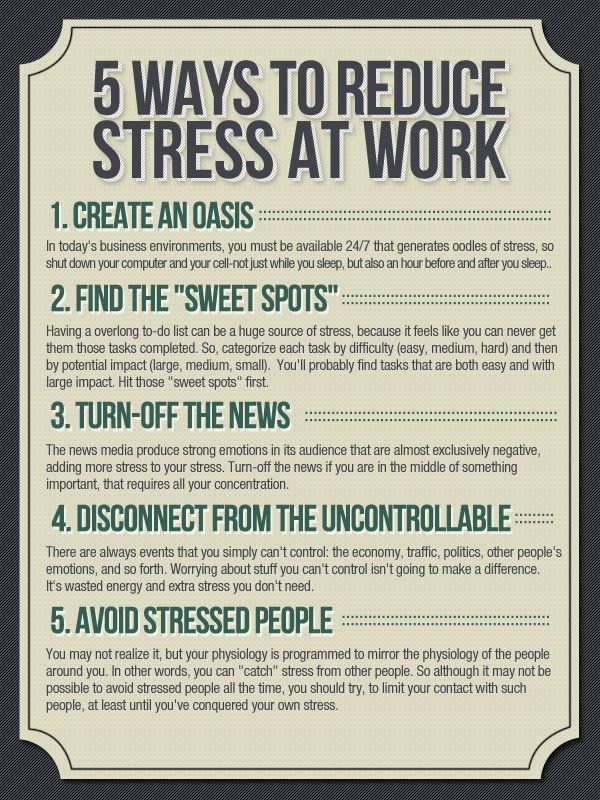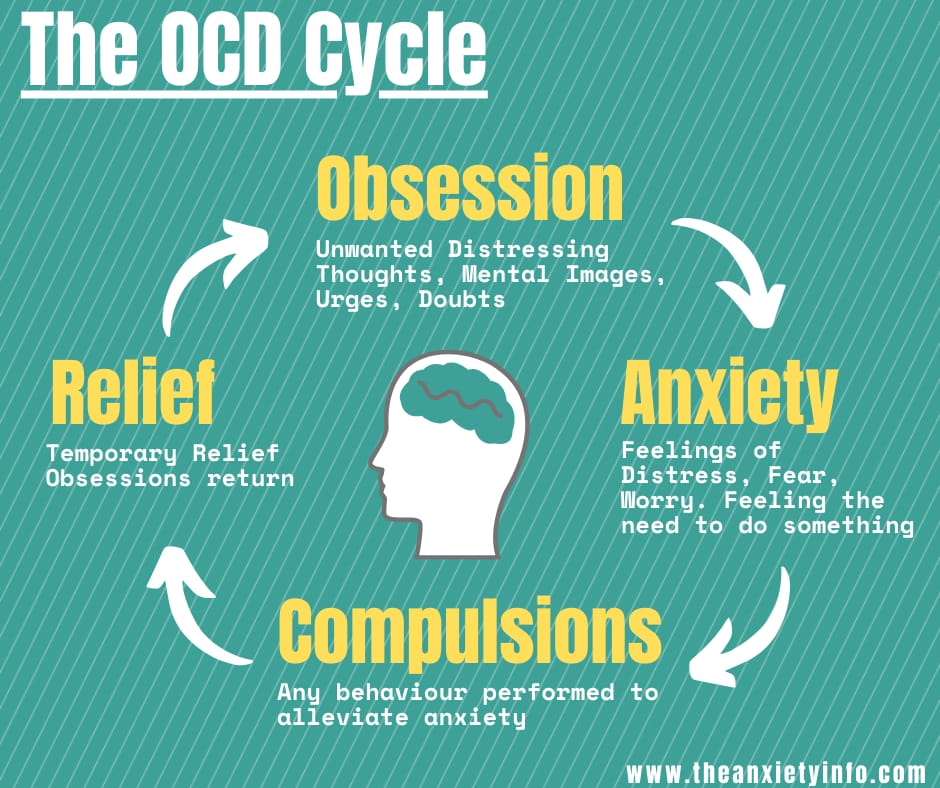Is introvert bad
Is It OK to Be an Introvert?
Yes, It’s OK to Be an Introvert
Are you more of the quiet type? Are you wondering what that means — and whether it’s OK to be an introvert? You’re not alone. Our society still favors extroverts, and many “quiet types” get the message that it’s not OK to be an introvert — but that doesn’t make it true. And those perspectives are changing.
Yes, being an introvert is OK. It’s a natural part of who you are, it comes with a lot of advantages and, yes, sometimes you’ll get tired if you’re around people too long. But introverts can be fun, interesting, social, and even outgoing when they want to be.
They can also be profound thinkers a beloved part of any group.
It’s OK to be an introvert, and it’s something you can be proud of.
Being an Introvert is Normal
Many people grow up with misconceptions about what it means to be an introvert. The truth is pretty simple:
- Being an introvert is normal and healthy.
30 to 50 percent of the population is introverted. - Being an introvert does not mean you’re shy or have social anxiety.
Some introverts do, others don’t. And it’s possible to overcome them. - Being an introvert can be your biggest strength.
It allows you to focus, think deeply, and — in many cases — achieve things that no one else can.
Are you an introvert? Take the introvert test and find out.
7 Reasons It’s OK to Be an Introvert
1. You were born that way
It’s true. Introversion is genetic, and infants will show signs of being an introvert within a few months of birth. Introversion is considered a normal, healthy temperament — it’s something you can be proud of.
2. Some of the greatest people in history were introverts.
Because introverts focus and think carefully about how to do things, they’re often more than just OK — they’re high achievers. And that shows in how many successful and famous introverts we’ve had throughout history.
Examples of famous introverts include pop icon Lorde; actors Audrey Hepburn, Meg Ryan, Clint Eastwood and Harrison Ford; Harry Potter author J.K. Rowling and children’s author Dr. Seuss; comedian Steve Martin; Civil Rights heroine Rosa Parks; former Presidents Abraham Lincoln and Barack Obama; classical composer Frederic Chopin; former First Lady Eleanor Roosevelt; genius physicist Albert Einstein, visionary entrepreneur Elon Musk, and billionaire investor Warren Buffet; and, according to many accounts, even Mahatma Gandhi.
But that barely scratches the surface. You could easily count the majority of the world’s authors, artists, and musicians as introverts — and many say so openly.
3. Introverts tend to be creative, deep thinkers.
This goes hand in hand with why so many introverts get ahead — both in the creative fields and out of them. Introverts tend to think on a deep level, producing clever solutions and new ideas that others can’t match.
This creativity pays off whether you consider yourself an artist or not.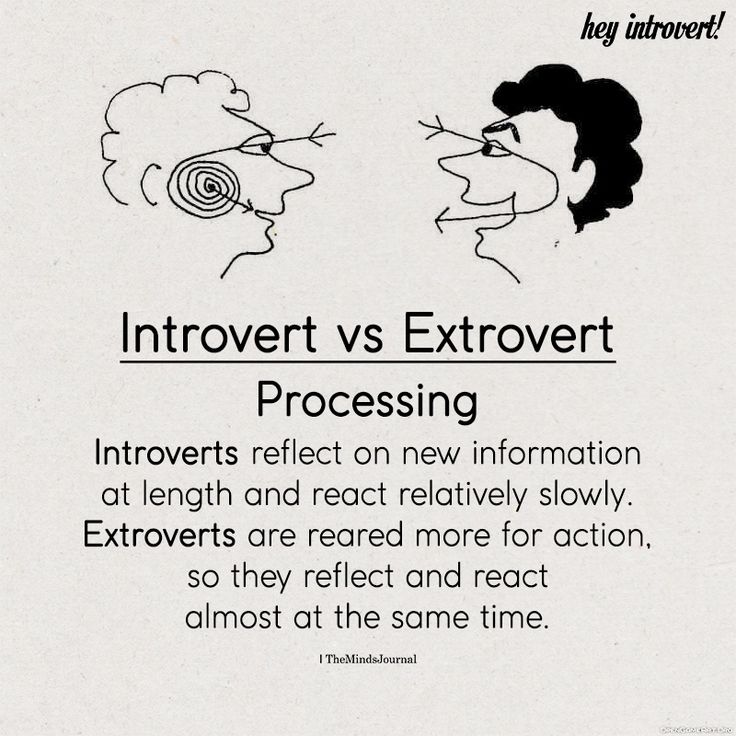 In any career, problem-solvers and creative thinkers tend to get ahead, and can even transform the way a company or industry works. Yeah, thats sounds pretty OK.
In any career, problem-solvers and creative thinkers tend to get ahead, and can even transform the way a company or industry works. Yeah, thats sounds pretty OK.
4. You form deeper relationships.
Extroverts tend to strike up a friendship with almost everyone they meet. It’s easy to envy that — but many of those relationships aren’t actually that deep. In fact, extroverts tend to have wide networks of hundreds of people they barely know, while introverts tend to have much closer relationships with a smaller number of people.
That can be advantageous. When you form close, lasting relationships, you tend to be surrounded by people you can truly count on. And, since you take the time to get to know those people on a deep level, you will be capable of truly profound, mutually enriching conversations — not just small talk.
The result is that introverts tend to have mentors, creative collaborators, and vital moral support when they need it most. That’s a lot better than just having bar buddies.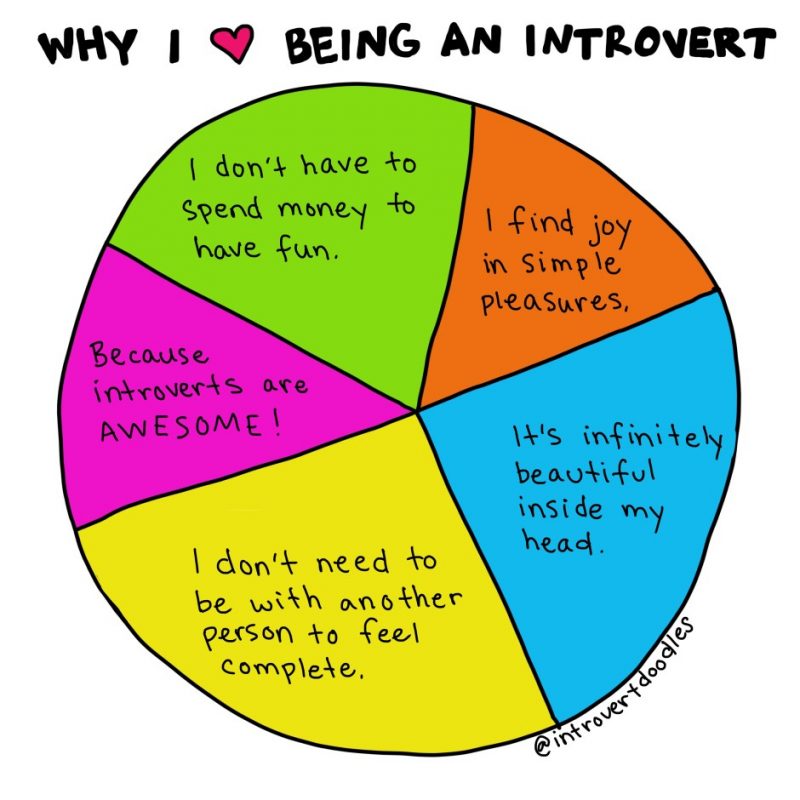
5. You are privy to a rich inner world.
Not every introvert would consider themselves to have an “imagination” in the traditional sense. But all introverts have the power to go deep into an inner world of ideas. For some, that might mean mapping out an entire dream world for their next painting. For others, it may mean envisioning and planning every step of a project.
Either way, it gives introverts the power to envision things without trying them in the real world, and to draw on that vision to do big things.
(Plus, it’s just relaxing. I mean, the joy of reading, daydreaming, pondering — is that the number one thing that makes being an introvert OK?)
6. You have a quiet power that commands respect.
If you’re younger you might not have experienced this yet, but it’s coming.
Everyone thinks of leaders as loud, brash, aggressive types. And yeah, there are leaders like that. But even they stop and listen when the wise, quiet person in the corner speaks up and drops a truth bomb.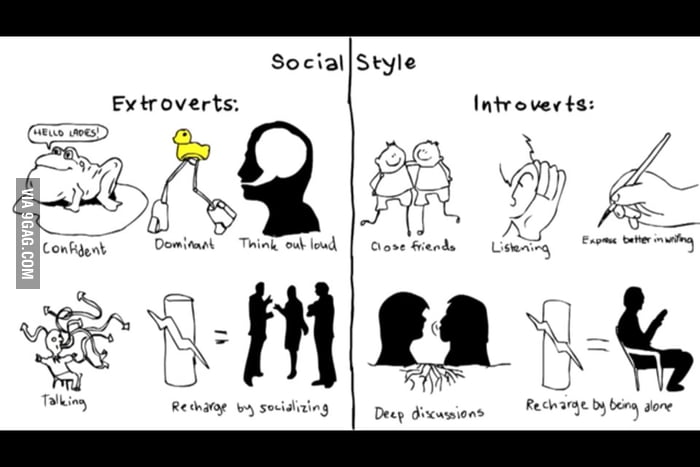
Introverts have been rocking quiet power since the age of the legend of Merlin — if not earlier.
7. It’s never been a better time to be an introvert.
For many years, it’s true what it wasn’t considered OK to be an introvert. Introverts were misunderstood, overlooked, or told there was something wrong with them (hint: there isn’t). But that has changed.
Today, more people understand what it feels like to be an introvert than ever before. If you tell someone you’re an introvert, chances are they’ll know what you mean — and they’ll probably be fine with it. In fact, people will even be understanding if you need to leave an event early or take some quiet time for yourself. They’re OK with you being an introvert.
And, when you mention that you’re an introvert, a funny things happens: you find out you’re not alone. More than a third of the people around you are introverts, and many will be happy to know you’re one too.
Yeah, maybe it’s OK to be an introvert after all.
Being an Introvert Is More Than OK — It’s a Strength
The truth is, it’s more than just OK to be an introvert. When you learn to understand your personality, and you make it a priority to get the quiet time you need, it becomes a source of strength. You can draw on your introversion to be thoughtful, observant, a good listener, a creative thinker, and a beloved friend.
Being an introvert is an advantage. We hope that’s OK with you.
Related Resources:
- What It Feels Like to Be an Introvert
- 4 Reasons Introverts Make Awesome Employees
- Don’t Underestimate Me Just Because I’m Not Dominating the Conversation
The Surprising Benefits of Being an Introvert
There are a lot of misconceptions about introverts — like that they’re antisocial, unfriendly, shy or lonely. But in many cases, being an introvert can actually be an asset.
Introverts are people who get their energy from spending time alone, according to Dr. Jennifer Kahnweiler, author of The Introverted Leader: Building on Your Quiet Strength.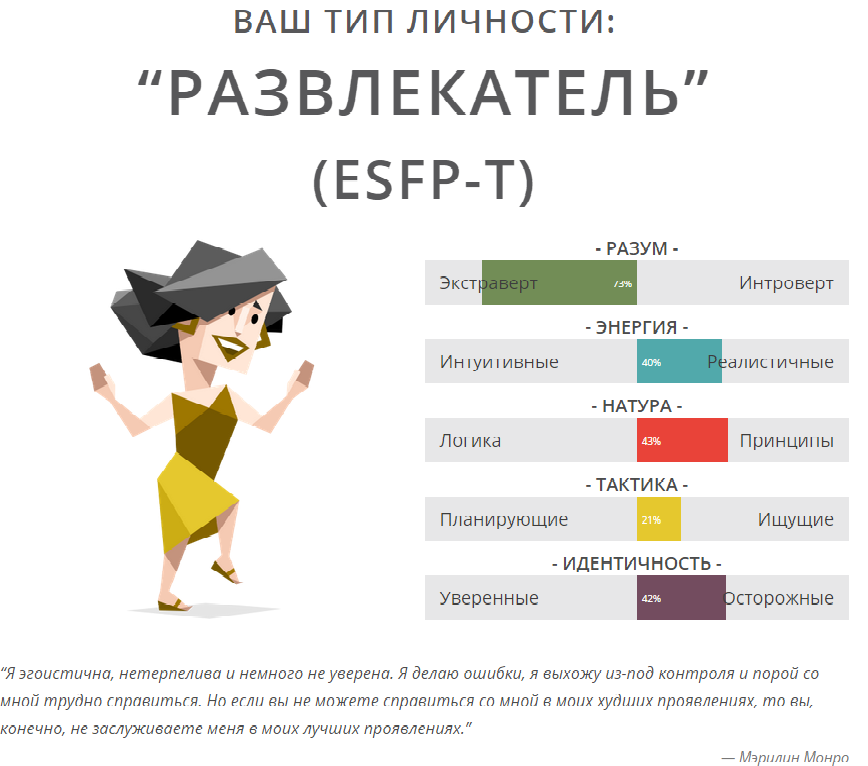 “It’s kind of like a battery they recharge,” she says. “And then they can go out into the world and connect really beautifully with people.”
“It’s kind of like a battery they recharge,” she says. “And then they can go out into the world and connect really beautifully with people.”
A 2008 study published in the Journal of Motor Behavior found that introverts take a longer time to process information than extroverts. Kahnweiler says this is actually because they process more thoughtfully than extroverts do — they take extra time to understand ideas before moving on to new ones.
While we’re all often flooded with messages that we need to speak up and stand out in order to be successful, introverts can actually achieve even more if they hone their natural strengths, says Beth Buelow, author of The Introvert Entrepreneur: Amplify Your Strengths and Create Success on Your Own Terms.
“It’s not about becoming a fake extrovert,” Buelow says. “It’s really about acknowledging the valuable traits that introverts bring.”
Here are some of the benefits of being an introvert:
They’re good listenersIntroverts are naturally adept when it comes to actively listening, according to Buelow, who identifies as an introvert herself. “We tend to be the friend or colleague you can call on when you’re upset or you have good news to share,” she says. “We’re going to be able to listen and be with you in that, without turning it around and making it about us.”
“We tend to be the friend or colleague you can call on when you’re upset or you have good news to share,” she says. “We’re going to be able to listen and be with you in that, without turning it around and making it about us.”
Extroverted people are more inclined to jump into a conversation before fully processing what the other person has said. Not because they’re selfish or don’t care, but because they process information interactively, says Dr. Laurie Helgoe, author of Introvert Power: Why Your Hidden Life is Your Hidden Strength.
Conversely, introverts process information internally, Helgoe says. That skill allows them to hear, understand and provide carefully considered insight when they do respond.
They think before they speakBecause introverts typically feel less comfortable speaking than they do listening, they choose their words wisely, according to Buelow. “We only speak when we have something to say, so there is a higher chance that we will have an impact with our words,” she says.
That being said, introverts may take a little too long to formulate their thoughts before sharing them — especially in fast-paced business settings. To combat that tendency, Buelow suggests that introverts should go into meetings prepared to speak first, before there’s time to talk themselves out of it. “Break your own ice,” she says, advising introverts to share a piece of data or an opening remark for the top of the meeting. “Establish your presence early on before the conversation gets thicker and more competitive.”
The skill of choosing your words wisely is just as beneficial online as it is in person. Introverts are more effective on social media because they’re less prone to knee-jerk reactions than extroverts, says Kahnweiler.
“Some people are just throwing thoughts everywhere, randomly posting everything — not introverts,” she says. “There’s a strategy that they take.”
They’re observantIn addition to their superior listening skills, introverts possess what Buelow considers a “superpower”: their observation skills. “We notice things others might not notice because they’re talking and processing out loud,” she says. Although it may look like they’re just sitting quietly during a meeting, introverts are actually soaking in the information that’s being presented and thinking critically.
“We notice things others might not notice because they’re talking and processing out loud,” she says. Although it may look like they’re just sitting quietly during a meeting, introverts are actually soaking in the information that’s being presented and thinking critically.
The typical introvert also uses his or her observant nature to read the room. They’re more likely to notice people’s body language and facial expressions, which makes them better at interpersonal communication, according to Kahnweiler.
Introverts are especially skilled at noticing introvert qualities in others, Kahnweiler says. They can tell when a person is thinking, processing and observing, and then give them the space to do so, which makes people feel much more comfortable, according to Kahnweiler. “They allow time to really connect with people,” she says.
They make quality friendsSince introverts can feel their energy being drained by being around other people — as opposed to extroverts, who gain energy from being with others— introverts choose their friends wisely. They would rather have a few close, trusted friendships to invest their time and energy in, as opposed to a large network of acquaintances, according to Buelow.
They would rather have a few close, trusted friendships to invest their time and energy in, as opposed to a large network of acquaintances, according to Buelow.
“Introverts are pretty picky about who we bring into our lives,” Buelow says. “It requires some energy, and if you do come into our inner circle, that means a lot.”
This quality causes introverts to be loyal, attentive and committed friends, says Buelow.
They make loving romantic partnersIntroverts crave personal space to reflect and refuel, and they can sense when their partners need space, too. “Because we have this need for our own privacy, we give that to others as well,” says Buelow. “We won’t be super clingy or high maintenance in relationships.”
And the same qualities that make introverts great listeners also make them great partners, according to Kahnweiler. At the end of a long day, they’re there to listen and support their partner without feeling compelled to talk about themselves.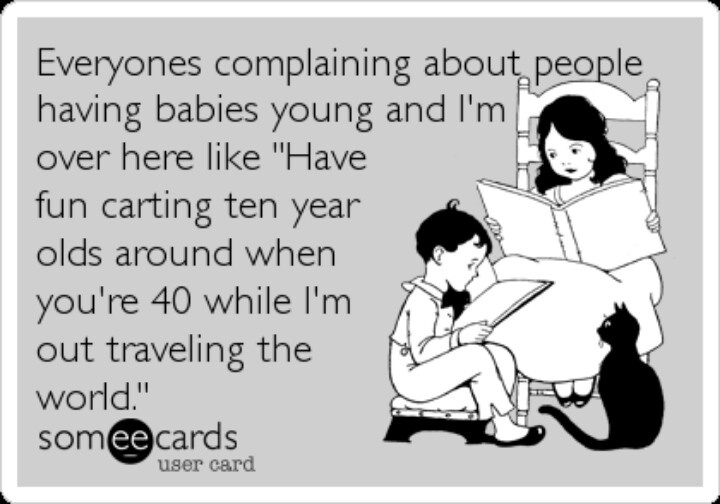
Introverts also like to get to know someone before sharing intimate details with a prospective partner, and it can make them appear more appealing in the early stages of relationships.
“There can be something attractive about the mystery factor of introverts,” says Helgoe. “That can inspire curiosity and wanting to know the person better.”
They’re thoughtful networkersBeing in a large group where the goal is to meet, talk and make a good first impression can be overwhelming for many — especially for introverts. But Buelow says they can use their natural strengths to create meaningful connections. Extroverts may approach networking events with the goal of talking to as many people as possible, but often, those quick conversations don’t leave lasting impacts, says Buelow.
But Buelow says the strength in networking is not necessarily in numbers. Introverts, she says, should focus on learning about people they meet — even if they only connect with a handful of people.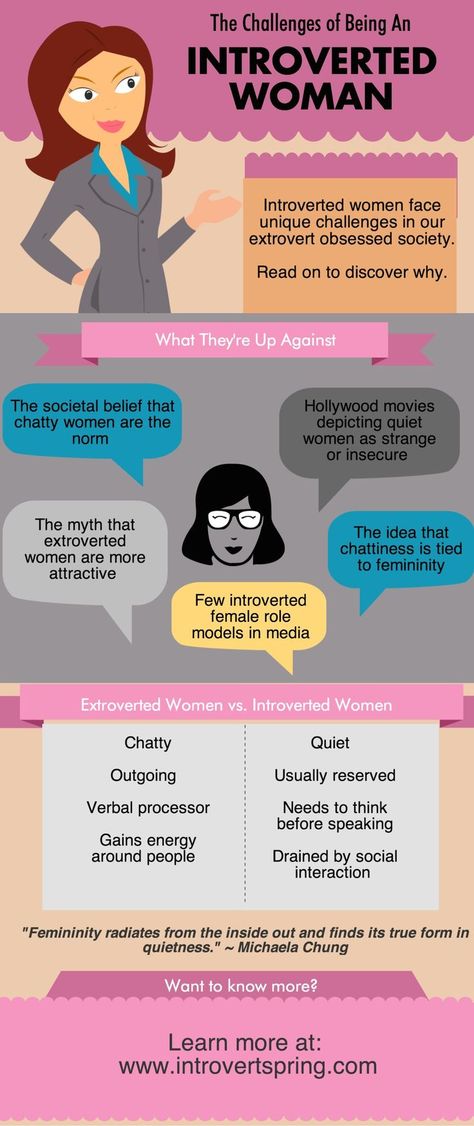
“I try to make meaningful connections with a couple of people that I can follow up with in some way,” says Buelow. After an event, she’ll send links to articles or speeches that made her think of the person she spoke to. This type of active listening and follow-up can be a lot more beneficial than simply handing out 50 business cards, she says.
They’re compassionate leadersHelgoe says introverts can make the best leaders — when they channel their natural strengths. For starters, they don’t feel the need to step into the spotlight and take all of the credit for group successes; rather, they are likely to highlight the strengths of their teams, according to Helgoe.
“An extroverted leader may be noticeable, but you may see the leader before you see the team,” Helgoe says. And employees who feel recognized tend to be more motivated, she says.
And since introverts process information more slowly and thoughtfully than their extroverted counterparts, introverted leaders tend to learn more about their subordinates, according to Kahnweiler.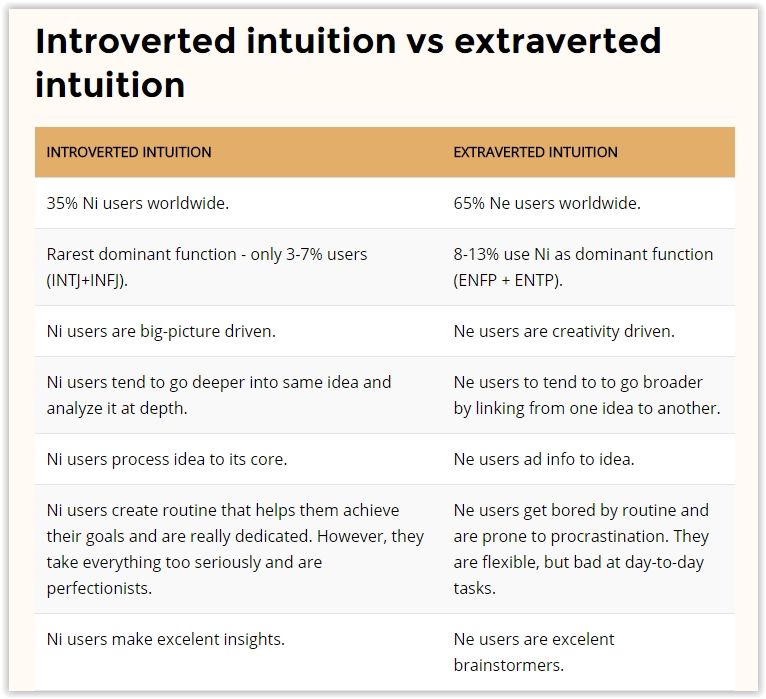 They have focused conversations with their team members in order to learn their skills, passions and strengths, according to Kahnweiler. Once they gather all of this information, they can use what they’ve learned to help each team member be more efficient and happier at work.
They have focused conversations with their team members in order to learn their skills, passions and strengths, according to Kahnweiler. Once they gather all of this information, they can use what they’ve learned to help each team member be more efficient and happier at work.
“People will talk about their favorite managers and they’ll say, ‘They were with me,’” Kahnweiler says. “‘Even if there were more pressing things, I felt like I had their attention. I had their ear.’”
Contact us at [email protected].
Who is an introvert and what kind of occupation suits him
An introvert does not like noisy companies and prefers to spend time alone. We tell what kind of personality type it is, what are its advantages and why modern psychologists try not to use this term
Who is an introvert
An introvert is a person who is focused on his inner world. He does not like crowds of people, prefers silence and a calm environment. In solitude, an introvert restores energy, and when communicating with people, it consumes it. This is the collective image of an introvert, although there is no unambiguous interpretation of the term "introvert": scientists from different schools interpret it differently.
This is the collective image of an introvert, although there is no unambiguous interpretation of the term "introvert": scientists from different schools interpret it differently.
Carl Jung was the first to propose the concepts of "extroversion" and "introversion" in the 1920s. In Psychological Types, he elaborated on how scientists before him tried to distinguish between sociable party-goers and shy stay-at-homes. And then he offered his own interpretation. In his opinion, the difference between them is in the direction of vital energy, libido. For introverts, this energy is directed inward, while for extroverts, it is directed outward. That is, the attention of extroverts is directed to the world around them and other people, while introverts, on the contrary, are immersed in themselves, their fantasies and introspection.
After Jung, Hans Eysenck took up the study of extraversion and introversion. In his opinion, introversion has several stable features: perseverance, rigidity, subjectivism, modesty, irritability.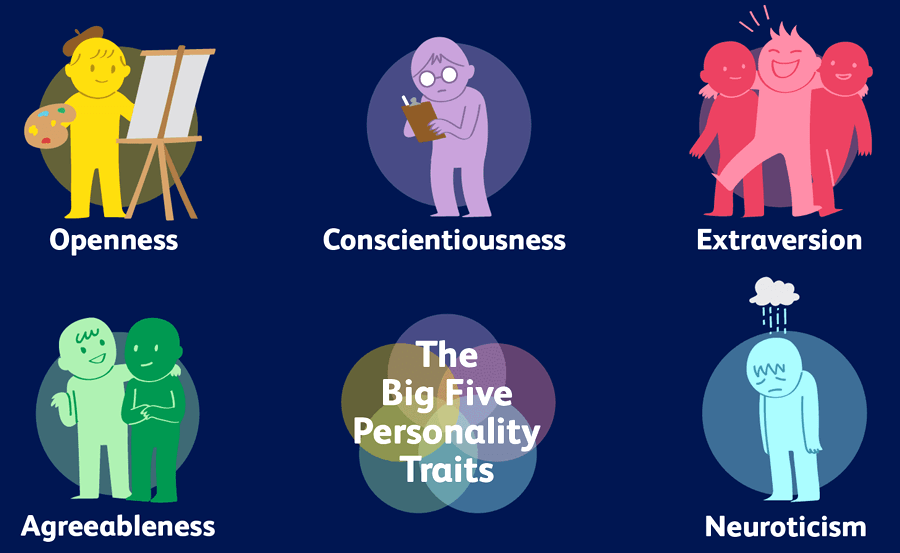 Introverts are shy, introspective, cold people. They love order, don't follow sudden impulses, and can be relied upon. Eysenck considered the parameter of extraversion/introversion to be one of the most important dimensions of personality, along with neuroticism and psychotism. Deriving his three-factor theory of personality, Eysenck put these three dimensions at the basis.
Introverts are shy, introspective, cold people. They love order, don't follow sudden impulses, and can be relied upon. Eysenck considered the parameter of extraversion/introversion to be one of the most important dimensions of personality, along with neuroticism and psychotism. Deriving his three-factor theory of personality, Eysenck put these three dimensions at the basis.
In the 1970s, based on the types identified by Jung, the Soviet-Lithuanian researcher Aushra Augustinavichyute created her own typology of personality - socionics. According to it, people are divided into 16 types according to 4 parameters. One of these parameters is the introversion-extroversion scale. A similar division exists in the Myers-Briggs system. At the same time, both socionics and the Myers-Briggs system have features of pseudoscience.
The German psychiatrist Karl Leonhard distinguished between extroverts and introverts in terms of their attitude to information. According to his theory, an introvert is a strong-willed person with clear values. Thanks to them, a person is able to resist society and remain true to his point of view and principles. An extrovert according to Leonhard is a conformist. A weak-willed person subject to outside influence.
Thanks to them, a person is able to resist society and remain true to his point of view and principles. An extrovert according to Leonhard is a conformist. A weak-willed person subject to outside influence.
According to modern research, each of us has traits of both personality types. Psychologist and cognitive-behavioral psychotherapist Elizaveta Muratova told RBC Trends that modern psychologists prefer to avoid the terms "introvert" and "extrovert". These are too general terms. But there is still a division into personality types in modern psychology:
“In psychological and psychiatric practice, there are many models of personality typology. First of all, we are talking about how healthy a person is. Before typing a personality, you need to understand what state it is in. Even before choosing a typological model, we are talking about health, about the quality of a person,” says Muratova.
However, the term is still in use, and research into extraversion and introversion continues.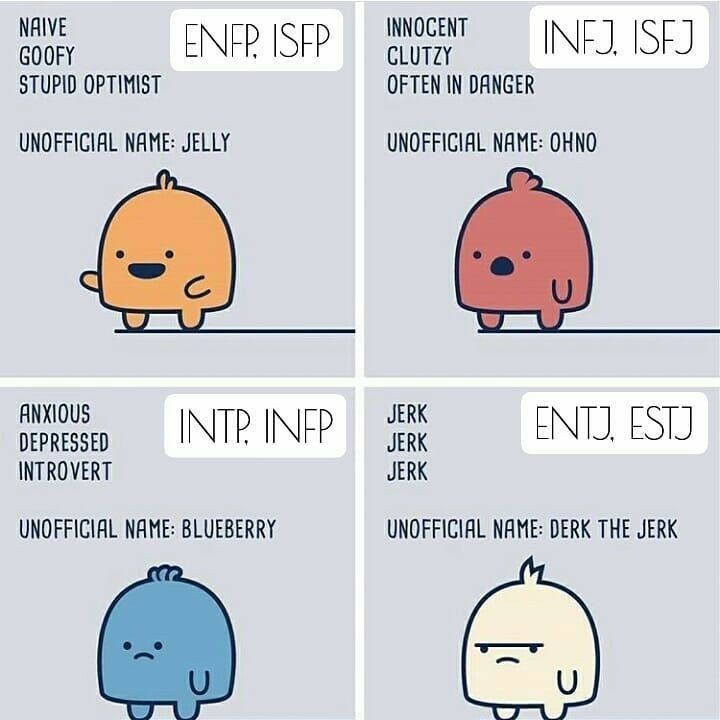 For example, in 2011, introverts were divided into four types. This model was proposed by Jonathan Cheek, a psychologist and researcher at Wellesley College (USA). He called his model STAR, after the first letters of the types: social (social), thinking (thinking), anxious (anxious) and restrained (restrained).
For example, in 2011, introverts were divided into four types. This model was proposed by Jonathan Cheek, a psychologist and researcher at Wellesley College (USA). He called his model STAR, after the first letters of the types: social (social), thinking (thinking), anxious (anxious) and restrained (restrained).
Another recent study states that covert narcissists often assume the introvert role. Such people consider themselves hypersensitive, but behind this there is an unhealthy thirst for attention. Recognizing such a person is quite difficult. Covert narcissists appear humble and reserved, but their ultimate goal is to gain admiration and attention from those around them. This is a consequence of neuroticism, not introversion.
Signs of an introvert
American scientists have formulated a number of signs of a typical introvert:
- dislike for large companies and crowds of people;
- unwillingness to initiate acquaintances;
- observation;
- the ability to focus attention on 1-3 objects maximum;
- the tendency to delve deeply into the issue under study;
- the need for a clear plan of action;
- small social circle;
- rich imagination and lively internal dialogue;
- built relationships with oneself;
- intolerance to someone else's bad mood;
- propensity to work alone.

Differences between introverts and extroverts
Tendency to control or impulsiveness
According to Eysenck, the typical extrovert is a cheerful, carefree optimist who aims to make as many acquaintances as possible. Extroverts have impulsive, emotional reactions. Some people have a tendency to be aggressive. An extrovert has poor control over his actions, his focus is constantly shifting.
The opposite is true for an introvert. Eysenck describes the typical introvert as a calm, shy person. He often engages in introspection. In companies, he behaves aloofly, he shows warm feelings only to close people. Takes a long time to make decisions. It is important for an introvert to plan and think things through in advance. He does not act spontaneously and on emotions. An introvert controls his feelings, it is difficult to piss him off.
Search for positive emotions in different sources
Due to their isolation, introverts are often perceived as sad people who are sad more often than extroverts.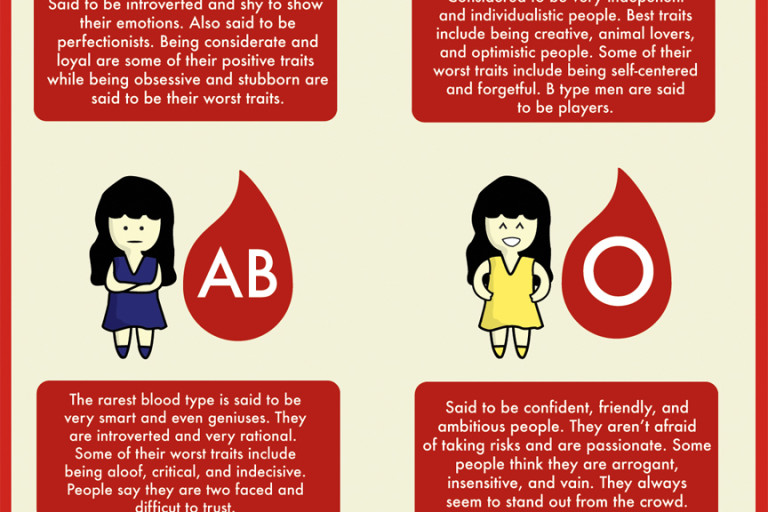 Extroverts do experience more positive emotions than introverts. This is confirmed by researchers at the University of Minnesota. But, according to them, extroverts and introverts get these positive emotions from different sources.
Extroverts do experience more positive emotions than introverts. This is confirmed by researchers at the University of Minnesota. But, according to them, extroverts and introverts get these positive emotions from different sources.
Thus, the true goal of an extrovert is the attention of others. Therefore, he is ready to be more involved in communication. An extrovert doesn’t care what the contact will be, he is interested in the “reward” in the form of attention - this is what is fixed in the brain as positive emotions. And for introverts, the “reward” is expressed as contact. Because of this, introverts need less communication. “Therefore, they talk less, are less enthusiastic, and generally less purposeful,” says Colin DeYoung, a psychologist at the University of Minnesota, commenting on the differences in the brains of introverts and extroverts.
Why modern psychologists do not use the term "introversion"
In social terms, introversion and extraversion mean human behavior. Sociable people are called extroverts, and secretive and reserved people are called introverts. However, introverted behavior can be caused by various reasons, which means that the label “introvert” itself does not help us understand what is happening to a person and why he behaves in a certain way.
Sociable people are called extroverts, and secretive and reserved people are called introverts. However, introverted behavior can be caused by various reasons, which means that the label “introvert” itself does not help us understand what is happening to a person and why he behaves in a certain way.
Elizaveta Muratova:
“Pop psychology says that the effect is determined by the cause. For example, if a woman paints her lips with red lipstick, she wants attention. However, in clinical practice, we always look at what task a person implements with such an action. We call someone an introvert, an unsociable, withdrawn person, when we observe a particular behavior. However, there can be many reasons for such behavior.
For example, there is a stereotype that introverts don't like people. In fact, communication can be a difficult or painful process. It can also be so important that it is scary to start it. Communication may be avoided by trauma survivors.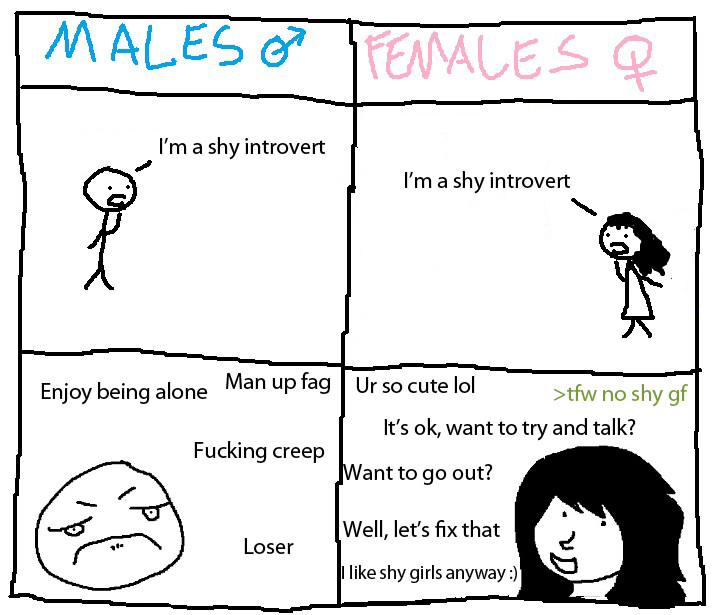 These may be people with a low need for communication. They just don't want to interact, they don't see the point in it. An introvert can be mistaken for a person with low communication skills. Most often, we call people introverts or extroverts because of their behavior, but we don't know why."
These may be people with a low need for communication. They just don't want to interact, they don't see the point in it. An introvert can be mistaken for a person with low communication skills. Most often, we call people introverts or extroverts because of their behavior, but we don't know why."
There is an opinion in society that extroverts work better than introverts in a team. But Elizaveta Muratova notes that the point is not in the type of personality, but in the needs of a person. “Almost in every resume you can see a mention of sociability and stress resistance. This is a matter of health, skills, not the type of personality,” says Muratova.
Advantages of introverts
If you continue to use the terms "introverts" and "extroverts", you can find some advantages for the former (despite the stereotype that extroverts are better placed in society).
Sensitivity
The Yale University team claims that introverts understand people much better than extroverts.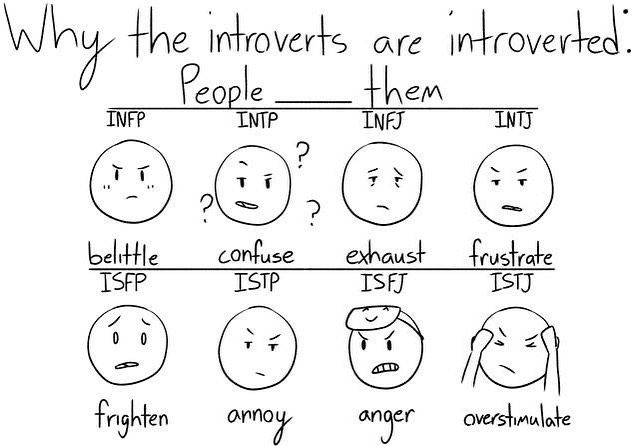 After polling more than a thousand volunteers, experts said that introverts are "born psychologists." Introverts, according to research, may not like interacting with people as much as extroverts, but they will understand them better. Introverts observe and notice minor details. They understand the psychology of others much more clearly than extroverts.
After polling more than a thousand volunteers, experts said that introverts are "born psychologists." Introverts, according to research, may not like interacting with people as much as extroverts, but they will understand them better. Introverts observe and notice minor details. They understand the psychology of others much more clearly than extroverts.
“We see that introverts spend more time observing human nature and reactions than those who are busy socializing. They are also accurate in introspection because they have fewer biases,” said Yale psychologist and study co-author Anton Gollwitzer.
Mindfulness
A 2008 study found that introverts take longer to process information than extroverts. However, the author of the book “Introvert Leader. How to succeed in a society dominated by extroverts” Jennifer Kahnweiler says that this is actually due to the thoughtfulness of introverts.
Economy in spending internal energy
Since introverts communicate less, they use less internal energy. This led scientists from the Canadian University of Calgary to suggest that the stereotypes that open and sociable people are happier than introverts are wrong. Other scientists from Canada and Australia confirm that extraversion comes at a cost of energy and time. Instead of spending these resources on getting and keeping other people's attention, introverts use them to focus and achieve goals.
This led scientists from the Canadian University of Calgary to suggest that the stereotypes that open and sociable people are happier than introverts are wrong. Other scientists from Canada and Australia confirm that extraversion comes at a cost of energy and time. Instead of spending these resources on getting and keeping other people's attention, introverts use them to focus and achieve goals.
Safety
Extroverts are more physically at risk than introverts. They are more likely to get into trouble, join a criminal organization, or be arrested. This is written by scientists from North Dakota and Baltimore, USA.
Other advantages of introverts
According to scientists, introverts:
- easily cope with routine, monotonous work, study;
- bring what they started to the end;
- observe discipline and regularity in business;
- are effectively engaged in self-education;
- analyze well and dive deep into the problem;
- make informed decisions;
- attentively listen to the interlocutor;
- take care of other people and their problems;
- have a high level of insight.

Professions for introverts
Perseverance, patience and an analytical approach to business enable introverts to work in the exact sciences, scientists from Iceland and America believe. An introvert is suitable for a profession that does not require constant communication with people. For example:
- Information security specialist. IT sphere is a godsend for an introvert. All work in the computer, colleagues too. Any problem or inconvenience can also be solved with the help of technology.
- Business analyst. He rarely interacts with colleagues in person. The main tasks are performed on the computer. It is possible to work from home.
- Accountant. Suitable for those who like to work with numbers, and also want to be able to change the scope of work. Accountants are needed both in the restaurant business and in cultural institutions.
- Software developer.
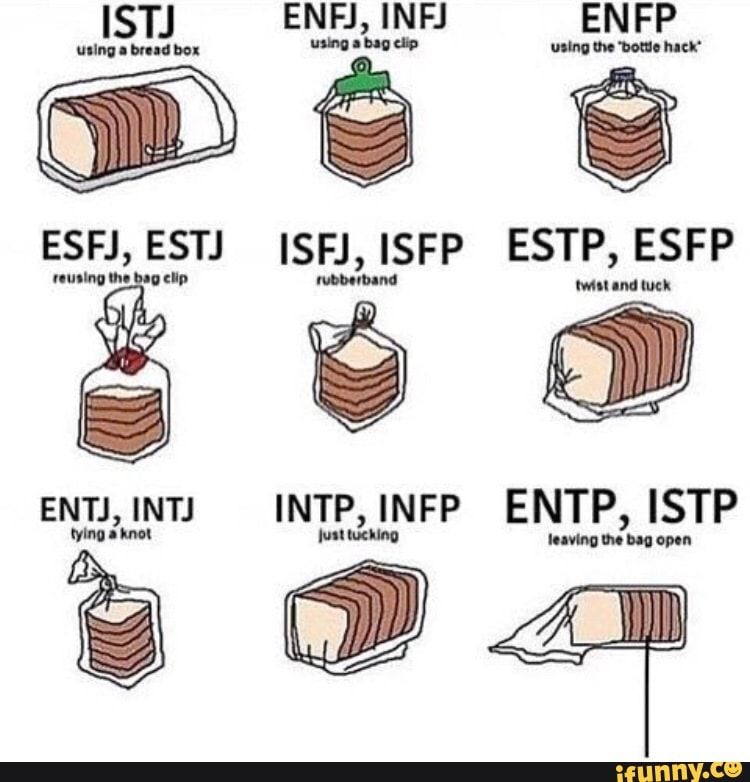 One of the most common remote professions. Freelancers are often hired for this position. Comfortable for an introvert - you don’t need to go to the office with a large number of colleagues, unless you have to connect to online planning meetings.
One of the most common remote professions. Freelancers are often hired for this position. Comfortable for an introvert - you don’t need to go to the office with a large number of colleagues, unless you have to connect to online planning meetings. - Virologist. Science loves concentrated, measured employees. Painstakingly analyzing samples and thoughtfully describing experiments is a calm, routine, but fascinating task for an introvert.
- Editor, proofreader. Monotonous work with text, which requires maximum attention and perseverance, and these are the strengths of an introvert.
- Sound engineer. Instead of communicating with people - recordings of their voices or music. The main thing is not to get a job on the radio, where the presenters speak live around the clock. It will be easier for an introvert if it is possible to pause the voice in the headphones and take a break.
- Video, photo editor.
 Another profession where the employee is alone with the material and tasks. Focus and a slight form of perfectionism are also important here in order to give the perfect shots.
Another profession where the employee is alone with the material and tasks. Focus and a slight form of perfectionism are also important here in order to give the perfect shots. - Restorer. This work calms the introvert. A monotonous long process that would surely piss off a typical extrovert.
- Trucker. Long trips alone with your thoughts are not for everyone. But this profession gives maximum opportunities to think and enjoy loneliness.
How an introvert can become a leader
Psychologist Elizaveta Muratova notes that personality typing is often used in business practice.
Elizaveta Muratova:
“We type people so that they occupy certain positions. Personal structure during life does not change dramatically, but can be somewhat adjusted. Personality type is how a person sees the world, what is important to him, what he gets physiological pleasure from. There are clearly paranoid people.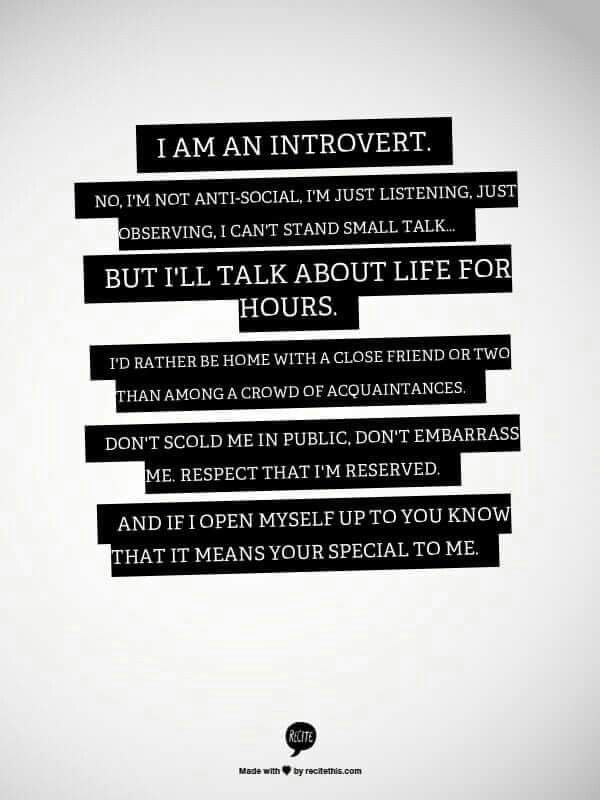 Their main value is their own safety. They show themselves better in scrupulous work. The basic personal value of a person of the histrionic (hysterical) type is communication and seduction. What we call personality traits are, in fact, skills. When we talk about leadership qualities, we must understand that this is a whole complex of processes. For example, in a narcissistic person, leadership comes from the very structure of the personality. But other types of people are also interested in leadership and are able to exercise it.
Their main value is their own safety. They show themselves better in scrupulous work. The basic personal value of a person of the histrionic (hysterical) type is communication and seduction. What we call personality traits are, in fact, skills. When we talk about leadership qualities, we must understand that this is a whole complex of processes. For example, in a narcissistic person, leadership comes from the very structure of the personality. But other types of people are also interested in leadership and are able to exercise it.
Why introverts can be good leaders
It is believed that people tend to choose self-confident, charismatic people as leaders. But a Yale University team study says that an introvert in crisis situations outperforms an extrovert in a leadership position. The ability to deeply analyze what is happening and reflect after significant events allows the introvert to understand the situation in more detail. A few hours in silence, alone with your thoughts, will allow the introvert leader to understand what is happening and find the most effective solution.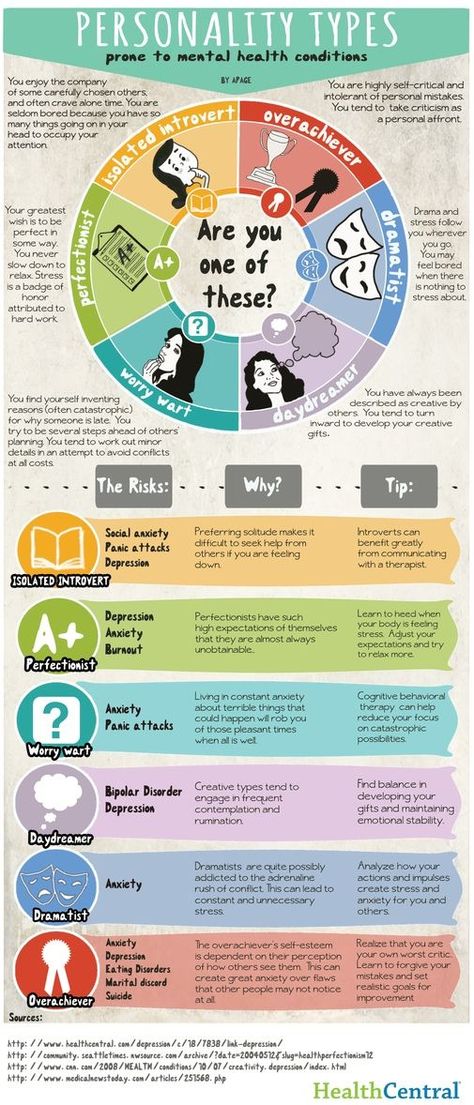
According to a study by Brigham Young University (Utah, USA), students value tracking deadlines, providing feedback, and coordinating teamwork as leaders. Eloquence and charisma were much less frequently mentioned. “Those who take the time to pause and help others with their tasks are more likely to be seen as leaders,” said study co-author Cody Reeves.
Tips for introverts who want to become leaders
For those introverts who are interested in leadership positions, American scientists recommend:
- Talk more about your ideas, decisions, achievements. Introverts often remain in the background, even when the job is done perfectly. For this type of personality, the result is more important than the amount of attention drawn to the process and the performer. In addition, introverts, as a rule, are not motivated enough, they do not see a global goal in attracting the attention of others.
- To overcome isolation, but not to give up loneliness.
Participating more actively in planning meetings and brainstorming sessions, and even going out to lunch with colleagues, can be a good career boost.
- Get inspired by the goal. Understanding why you need to start a conversation and initiate meetings will help you not to be afraid and act. For example, Cambridge University professor Brian Little began to behave like an extrovert: “I am an introvert, but my main project is teaching. I am a professor and I love my students and my work. I look forward to telling them something new and exciting. And I act like an extrovert, because at eight in the morning students need a little humor, a little collaboration, so it’s much easier to get through a busy school day. ”
- Use your strengths. One study says that the best leaders are those who can plan and work ahead of the curve. Introverts have a well-developed awareness, they are ready to listen and empathize, to help solve the problem.
25 things only introverts will understand
March 25, 2021 Life
To determine your temperament, it is not necessary to pass psychological tests. You are prone to introversion if you notice these oddities in yourself.
1. You don't leave the apartment until the neighbor leaves.
Situation: you hear that the neighbor's door opens in the hallway or on the landing. In order not to once again intersect with a person, you calm down and wait until he leaves. Yes, it's strange, but sometimes introverts hide from even the nicest people, just to avoid having to exchange a few words with them.
2. You are secretly glad that your friends canceled the meeting
In order not to be considered a hermit, sometimes you have to go out to meet friends. But when the general plans are canceled, in your soul you rejoice: you can stay at home and not pretend to be a sociable type.
3. You feel uncomfortable at a party
Despite the dislike of noisy companies, there are events that cannot be avoided: a corporate party, a friend's wedding or a New Year's feast with relatives. The first thought that visits you at any meeting is: “What am I doing here ?!”
4. The Internet is not just a hobby for you, but a way of life
It is much easier for introverts to formulate thoughts on paper than to talk. It is difficult for you to communicate live, but in social networks you feel like a fish in water. In online correspondence, you can joke, and show off your mind, and leave a well-aimed comment.
5. You shy away from sales assistants while shopping
It's understandable: it's easier to find the right model and size yourself than to keep up a conversation with a stranger.
6. You try to be inconspicuous
You are not against communication, you are just not always ready for a conversation: it requires attitude and energy. In order to be less tired, introverts unconsciously limit themselves in communications, and in order to replenish their strength, they spend time alone.
In life, it manifests itself like this: you need to get something out of the refrigerator, and at this time your neighbor with a friend or parents with guests are sitting in the kitchen. The way out is to act like this guy from the gif:
7. Instead of a noisy company, you choose solitude
You are invited to spend the weekend together, and you say that you are very busy. Everyone understands that this is not so: in fact, you will stay at home and enjoy being alone. For introverts, this is the norm: they are not in a hurry to party and are able to enjoy the time spent alone with themselves.
8. You answer questions in monosyllables
What's new? and "How are you?" you try to answer as briefly as possible so that, God forbid, a conversation does not start. Small talk about anything is easy for extroverts, and introverts do not like this format of conversation.
9. You try to sneak out of the party
And try to do it as early as possible. You have an escape plan in reserve, for this you get to a meeting in your car. This is especially true for parties that you don’t want to go to in advance.
10. You rarely answer phone calls
By default, you do not answer calls from numbers you do not know, and prefer texting to a conversation with a friend or colleague.
11. You like to go to the cinema alone
You enjoy watching a movie alone or with a loved one. Afternoon sessions on weekdays, morning sessions on weekends - you try to choose a time when the hall is almost empty. Together with you, there are 2-3 more people in the hall - the same introverts who avoid large crowds of people.
12. You pretend not to notice someone you know.
Situation: after work you went to the grocery store. Everything is going well until you notice a friend between the rows of buckwheat and pasta. Your standard reaction is to turn away and quickly leave before he sees you.
13. Never open the door if you are not expecting guests
Why? You never know: a too friendly neighbor came for salt and will complain about the management company for 15 minutes, or the manager of an Internet company obsessively asks you to connect their new tariff.
14. Afraid to be alone with strangers
Maintain a conversation with a person you see for the first time? Never! This is what you look like when your friends leave you for a few minutes alone with their acquaintances:
15.
Why call when you can write?
16. You don't know how to behave when people sing the song "Happy birthday to you!"
You feel awkward and uncomfortable around people. Birthday becomes a special torture: you are talked to more than usual and paid too much attention. I want to hide under the table or run away!
17. Try to solve work issues through correspondence
While colleagues annoy you with phone calls, you prefer to solve everything by correspondence. Working in open space becomes a real tragedy: the noise and people around paralyze your work. "Please, can we have a quiet place?" - you think in especially difficult days.
18. Don't like to keep up a conversation with a stranger
You wish you could be invisible when someone in a bar or on an airplane starts talking to you. “Don’t start a conversation with me just because we are sitting next to each other,” you mentally tell your interlocutor. It's not that introverts do not like people and live communication. They are simply not ready to carry on a conversation with a stranger: this causes terrible discomfort.
19. An ideal day on the beach for you is a day on a completely empty beach.
Any person has such thoughts from time to time, especially when the beach is crowded, and you can safely swim only 50 meters from the shore. But for introverts, such a desire appears much more often: an empty beach is more comfortable for them by default than a crowded one.
20. You like to train alone
You hate personal trainers, group classes and chatters during sports because training time is your personal time. No joint runs and jokes with a trainer in the gym - why, when you can be alone with your thoughts and listen to your favorite tracks?
21. You don't reply to messages right away
Before you write a reply, you need to think about the content of the letter. Sometimes you completely forget to answer, and then justify yourself, coming up with stupid excuses.
22. You are not happy to meet new people
Even the very thought that you will have to meet new people is terrifying. This does not mean that you do not know how to make friends, it just makes it difficult for you to meet new people.
23. You shy away from too friendly acquaintances
Every time someone violates your personal space, you have an irresistible desire to disappear into thin air, disappear, run away, or give a good blow to the person who came to hug you.
24. You don't like large crowds
Concerts, parties, pub quizzes or work conferences make you feel uncomfortable and vulnerable. You, of course, do not panic, but subconsciously dream of leaving this place as soon as possible.
25. You are not a misanthrope, you are an introvert
You love people and understand the value of human interaction, so you quite consciously go out to parties and social events. But you are more comfortable alone with yourself: you value the time you spend alone or with loved ones.
